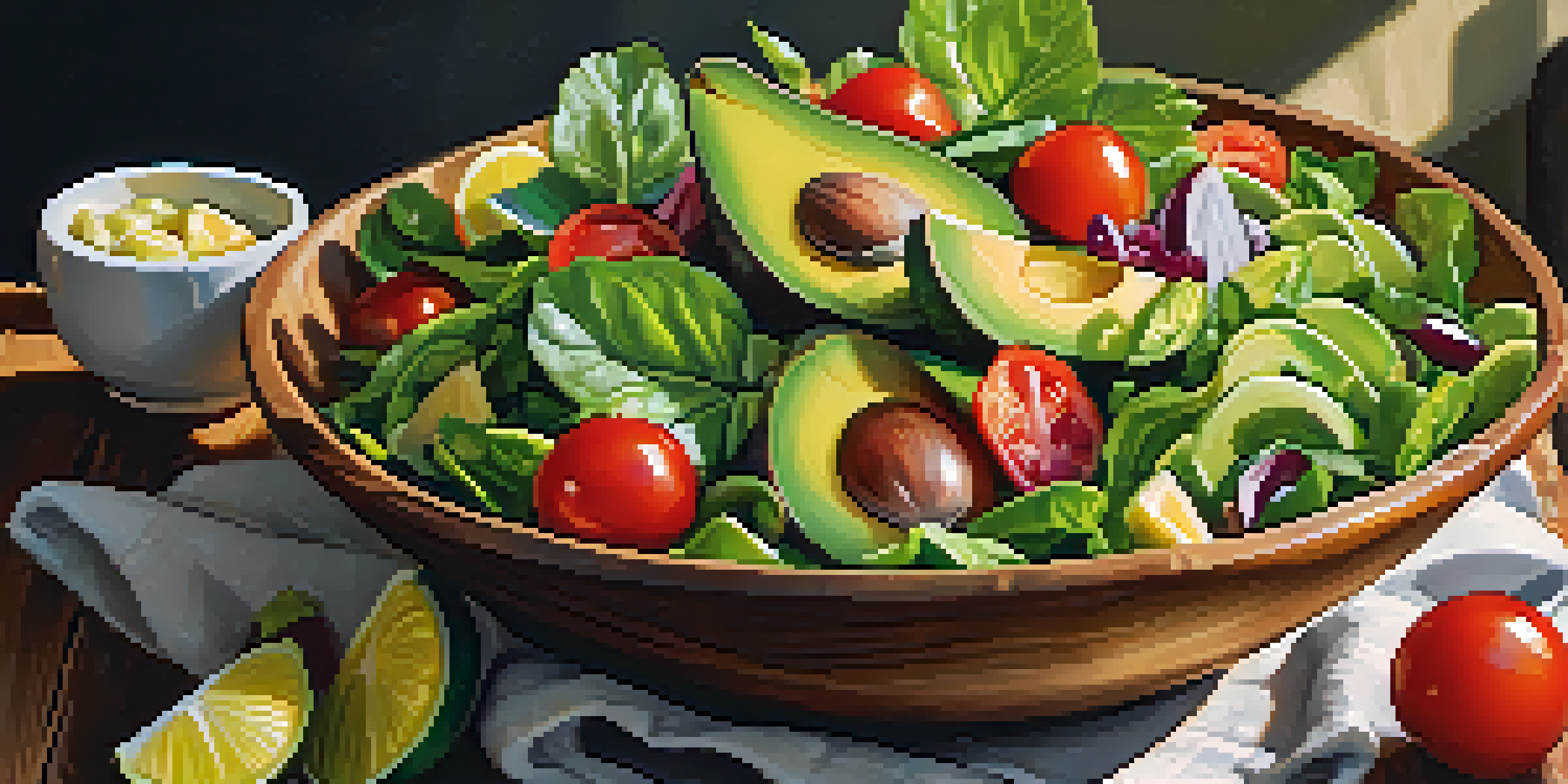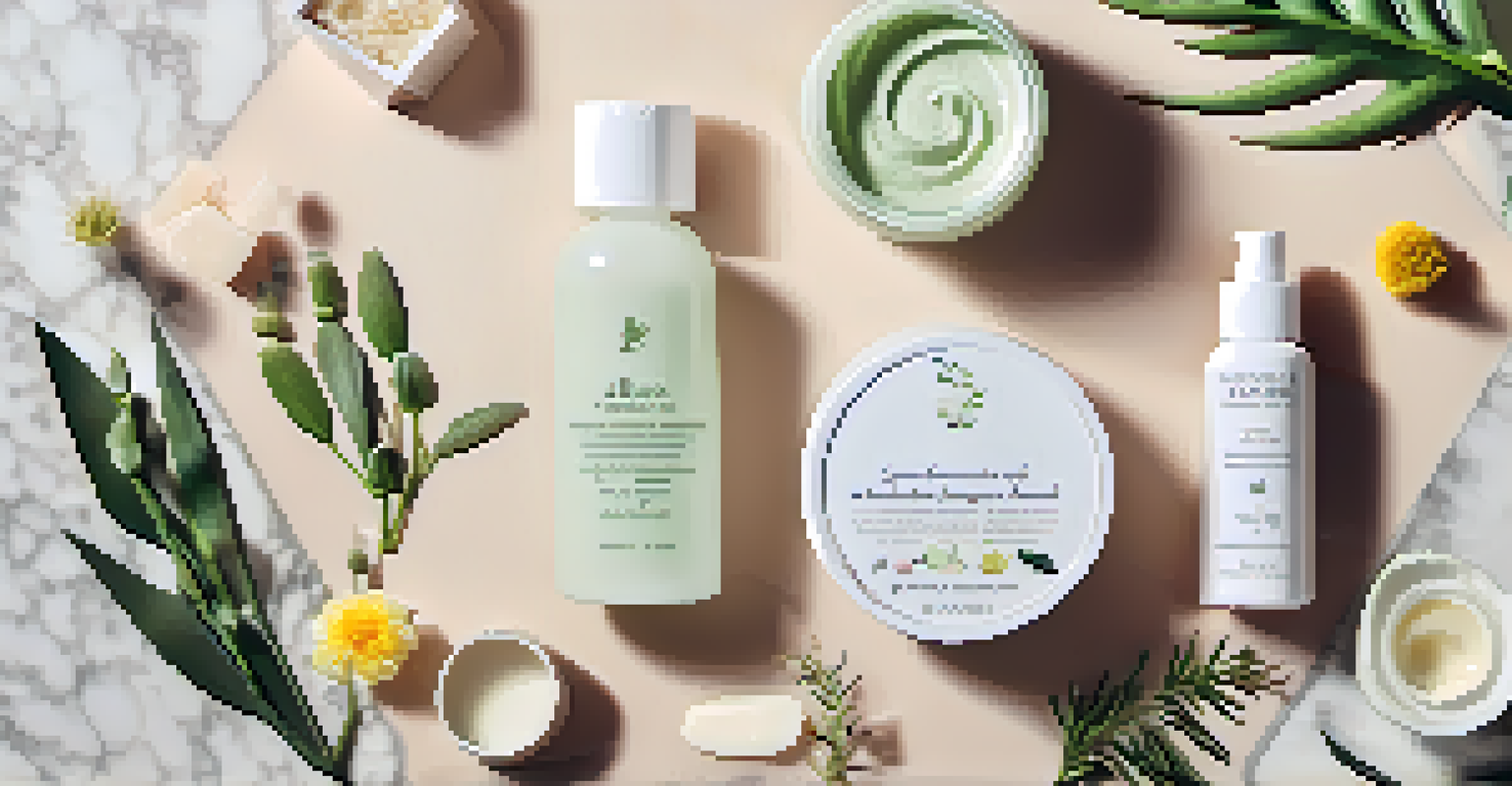Can Vegans Maintain Healthy Skin? Myths About Diet and Beauty

Understanding the Vegan Diet and Skin Health
The vegan diet, rich in fruits, vegetables, nuts, and grains, is known for its potential health benefits. Many people wonder how this plant-based approach affects skin health. It's essential to understand that the nutrients we consume play a vital role in maintaining healthy skin.
Let food be thy medicine and medicine be thy food.
Vegan diets are often high in antioxidants, vitamins, and minerals, all of which can contribute to a glowing complexion. For instance, vitamins A, C, and E found in colorful fruits and vegetables help combat oxidative stress and promote skin repair. However, it's important to ensure that the diet is well-balanced to avoid deficiencies.
In conclusion, a vegan diet can support healthy skin, but like any diet, it requires mindfulness about nutrient intake. By focusing on a variety of plant-based foods, vegans can achieve great skin health.
Common Myths About Vegan Diets and Skin
One prevalent myth is that vegan diets cannot provide enough protein for skin health. While protein is crucial for skin repair and regeneration, there are plenty of plant-based sources such as lentils, chickpeas, and quinoa that can fulfill these needs. A varied vegan diet can easily meet protein requirements.

Another misconception is that vegans lack essential fatty acids, which are vital for skin hydration. However, foods like flaxseeds, chia seeds, and walnuts are excellent sources of omega-3 fatty acids. Incorporating these into a vegan diet can help maintain skin's moisture and elasticity.
Vegan Diet Supports Skin Health
A well-balanced vegan diet rich in antioxidants, vitamins, and minerals can promote a glowing complexion and overall skin health.
These myths can deter individuals from exploring a vegan lifestyle. Understanding the truth behind these misconceptions is crucial for anyone considering veganism for health or ethical reasons.
The Role of Hydration in Skin Health
Hydration is key to healthy skin, and a vegan diet can support this need effectively. Many fruits and vegetables have high water content, contributing to overall hydration levels. For example, cucumbers and watermelon are not only refreshing but also help keep skin supple.
Your diet is a bank account. Good food choices are good investments.
Moreover, a vegan diet encourages the consumption of herbal teas and plant-based broths, which can also aid in hydration. Staying hydrated helps flush out toxins, which can lead to clearer skin and a more radiant appearance.
In essence, drinking plenty of fluids and eating hydrating foods can enhance skin health for vegans. This simple practice is often overlooked but can make a significant difference.
Essential Nutrients for Healthy Skin
Certain nutrients are particularly beneficial for skin health, and vegans can include these in their diets. For example, vitamin C is crucial for collagen production, and foods like oranges, strawberries, and bell peppers are packed with this vitamin. Ensuring adequate intake can help maintain skin firmness and elasticity.
Zinc is another important mineral that supports skin healing and can be found in legumes, nuts, and whole grains. Including a variety of these foods can help vegans meet their skin health needs without animal products.
Debunking Veganism Myths
Common misconceptions about vegan diets, such as inadequate protein and fatty acids, can deter individuals from exploring their benefits for skin health.
Focusing on nutrient-rich foods rather than just cutting out animal products can help vegans achieve and maintain healthy skin. It's all about balance and variety.
Debunking the Myth of Acne and Veganism
A common myth is that a vegan diet can worsen acne. In reality, many people experience clearer skin after switching to a plant-based diet. This improvement is often due to reduced dairy intake, which has been linked to acne in some studies.
Additionally, a diet high in fruits and vegetables can help reduce inflammation, a key factor in acne development. Foods rich in antioxidants can combat skin issues and promote a clearer complexion.
So, while individual results may vary, many vegans report positive changes in their skin. It's essential to remember that diet is just one aspect of skin health.
The Impact of Veganism on Aging Skin
As we age, our skin undergoes various changes, and diet can significantly influence this process. Many believe that a vegan diet can slow down skin aging due to its high antioxidant content. Antioxidants help protect the skin from oxidative stress, which can lead to premature aging.
Incorporating foods like berries, avocados, and nuts can provide the necessary nutrients to support skin health as we age. These foods are not only delicious but also contribute to a youthful appearance.
Hydration Enhances Skin Vitality
Staying hydrated through fruits, vegetables, and herbal teas is essential for maintaining skin suppleness and clarity in a vegan diet.
Ultimately, a well-planned vegan diet can be beneficial for aging skin, making it a viable option for those looking to maintain a vibrant complexion.
Vegan Skincare: Complementing Your Diet
While a vegan diet can nourish your skin from the inside out, choosing vegan skincare products can further enhance your skin health. Many conventional skincare products contain animal-derived ingredients that may not align with vegan principles. Opting for cruelty-free, plant-based products can be a great way to support your values and skin.
Look for products rich in natural oils, botanical extracts, and vitamins that promote hydration and repair. Ingredients like aloe vera and shea butter can provide soothing moisture and nourishment.

In conclusion, pairing a vegan diet with appropriate skincare can create a holistic approach to skin health. It’s about nurturing your body and skin with care and intention.